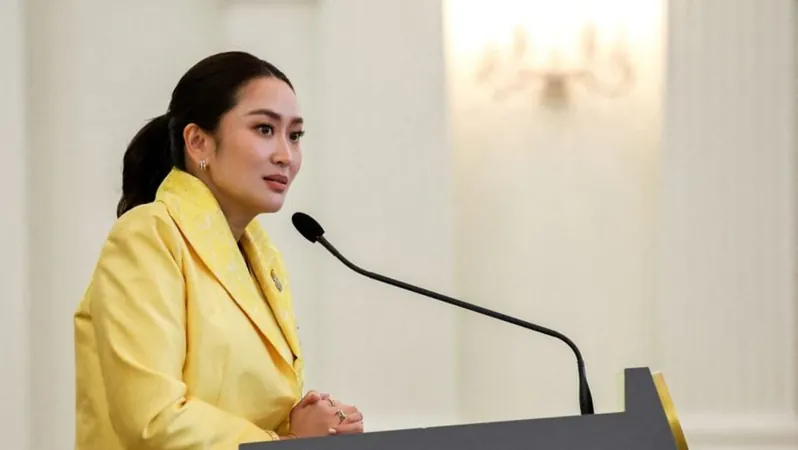
Thai PM Urges ASEAN to Take Action in Myanmar Crisis Ahead of High-Stakes Summit
2024-10-07
Author: Sarah
BANGKOK: In a pivotal statement made on October 7, Thai Prime Minister Paetongtarn Shinawatra called for the Association of Southeast Asian Nations (ASEAN) to take significant action in resolving the ongoing crisis in Myanmar, just days before a crucial summit of the 10-member regional group in Laos.
Myanmar has been engulfed in chaos since February 2021, when the military usurped power from an elected civilian government. This power grab ignited widespread protests which escalated into an armed resistance against the military junta. The conflict has spiraled into one of the most severe humanitarian crises in the region, with reports indicating that nearly a third of Myanmar’s 55 million population now relies on humanitarian assistance.
"ASEAN must play an important role in restoring peace to Myanmar as swiftly as possible," Prime Minister Paetongtarn emphasized during an event in Bangkok. She stated that Thailand is prepared to collaborate with Malaysia, the incoming chair of ASEAN, leveraging diplomatic measures to facilitate dialogue and negotiations aimed at resolving the crisis.
Despite the formulation of the Five Point Consensus by ASEAN in April 2021, aimed at fostering peace and dialogue, progress has been disappointingly minimal. The junta has consistently rebuffed efforts to engage in discussions, labeling opposing factions as terrorists intent on disassembling the nation.
The humanitarian fallout from the ongoing unrest is staggering. Many families lack access to basic necessities, and reports suggest that the humanitarian needs are only growing as the conflict grinds on. This dire situation is expected to be a primary focus at the leader's summit in Laos, where calls for stringent actions and unified responses are likely to echo.
ASEAN has taken a firm stance in excluding the junta leaders from its meetings, a decision spurred by the military’s noncompliance with the peace initiatives previously set forth. This controversial move has frustrated many influential member nations within the bloc, intensifying the debate over the appropriate response to the Myanmar crisis.
With indications that diplomatic efforts are necessary more than ever, last week Indonesia hosted a significant international dialogue, engaging both the United Nations and representatives from Myanmar’s opposition groups.
The outcome of the upcoming ASEAN summit could prove critical, not only for Myanmar’s future but also for the credibility and efficacy of the regional organization itself. Will ASEAN finally take decisive action, or will the cries for help from Myanmar’s people continue to fall on deaf ears? The world will be watching closely.




 Brasil (PT)
Brasil (PT)
 Canada (EN)
Canada (EN)
 Chile (ES)
Chile (ES)
 España (ES)
España (ES)
 France (FR)
France (FR)
 Hong Kong (EN)
Hong Kong (EN)
 Italia (IT)
Italia (IT)
 日本 (JA)
日本 (JA)
 Magyarország (HU)
Magyarország (HU)
 Norge (NO)
Norge (NO)
 Polska (PL)
Polska (PL)
 Schweiz (DE)
Schweiz (DE)
 Singapore (EN)
Singapore (EN)
 Sverige (SV)
Sverige (SV)
 Suomi (FI)
Suomi (FI)
 Türkiye (TR)
Türkiye (TR)